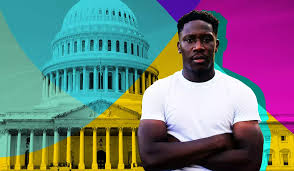Donald Trump has announced a series of high-profile Cabinet nominations. Trump’s Cabinet and senior advisor appointments mark a substantial shift in federal policy. He has selected a mix of loyalists, military veterans, and media personalities to lead key departments in what could bring significant policy shifts across the nation likely to impact communities of color in rural Southeast Missouri and Southern Illinois. Trump’s selections reflect his stance on national defense, border security, and government reform. Key appointments in defense, immigration, environmental regulation, and justice signal an administration focused on hard-line policies that may challenge these communities in areas like healthcare, immigration rights, environmental quality, and civil rights protections. These changes are expected to have profound implications, particularly for rural and marginalized communities in regions like Southeast Missouri and Southern Illinois.
Key Cabinet Picks and Their Expected Impact:

Defense Secretary: Trump’s choice of Fox News host Pete Hegseth, a veteran with limited experience as Defense Secretary a choice that has raised questions given Hegseth’s limited experience on the global stage. Known for his strong views against “woke” policies within the military this could bring sweeping changes to military policies around diversity and inclusion. Hegseth has publicly criticized initiatives promoting diversity and inclusion and questioned the role of women in combat. His stance could lead to shifts away from these programs, potentially impacting service members from diverse backgrounds, including those from rural and minority communities who depend on inclusive policies to thrive in military careers. He has publicly opposed programs aimed at promoting equity in the armed forces, which could lead to reduced support for minority veterans and communities of color in Southeast Missouri and Southern Illinois, many of whom rely on inclusive veteran support programs. Without these resources, veterans may lose critical support that helps them reintegrate and thrive post-service.
Marco Rubio for Secretary of State: Senator Marco Rubio was chosen for Secretary of State, signaling a hardline stance on China, Iran, and Russia. Rubio’s more cautious support for Ukraine aligns with Trump’s pivot on foreign assistance, which could signal reduced U.S. involvement in global conflicts. This shift might indirectly affect rural and minority communities whose members often serve in the armed forces and benefit from global stability initiatives.
Attorney General: Trump tapped Florida Representative Matt Gaetz for attorney general. Matt Gaetz, withdrew his name from consideration amid scrutiny over sex trafficking allegations. Trump will nominate former Florida Attorney General Pam Bondi to lead the Justice Department, after Matt Gaetz withdraws. His approach to civil rights enforcement may affect ongoing investigations related to police reform and voting rights, areas of critical importance to minority populations in the Midwest and South. “For too long, the partisan Department of Justice has been weaponized against me and other Republicans – Not anymore,” Trump said in a social media post. “Pam will refocus the DOJ to its intended purpose of fighting Crime, and Making America Safe Again.” For communities of color in Southeast Missouri and Southern Illinois, which have seen efforts to address local inequities, the presence of an Attorney General with a conservative stance on DOJ priorities could mean less federal involvement in holding local institutions accountable. This shift could weaken protections against racial discrimination, making it harder for residents to seek justice in cases of civil rights violations.
Department of Homeland Security (DHS): South Dakota Governor Kristi Noem was nominated as Homeland Security Secretary, where she will oversee immigration policies. Working alongside former ICE Director Tom Homan as “border czar,” to carry out “mass deportations” — a central promise in Trump’s campaign. Noem’s approach is expected to heighten enforcement at the border, potentially impacting communities with high immigrant populations. In rural Southern Illinois and Southeast Missouri families connected to immigrant communities in could face heightened fear and uncertainty. These communities contribute to the local workforce, particularly in agricultural and service sectors, which are vital to the regional economy. More aggressive immigration enforcement policies may discourage immigrants from seeking health services, reporting crimes, or participating in community life, further marginalizing these essential workers, and creating economic ripples and social challenges that impact the entire area.
Environmental Protection Agency (EPA): Former New York Congressman Lee Zeldin, who has pledged to cut regulations he says restrict business, was selected to lead the EPA. This could signal a rollback of environmental protections that would disproportionately affect rural and underserved areas already vulnerable to environmental risks. Communities of color in areas like Southern Illinois may see reduced air and water quality protections under Zeldin’s leadership, impacting public health. In regions with nearby industrial operations, reduced environmental oversight could mean an increase in pollutants. This is especially concerning for residents who already suffer from high rates of respiratory illnesses, often linked to poor air and water quality. Environmental rollbacks could also impact agricultural quality, posing long-term health risks for the predominantly Black and Latino communities living in close proximity to these areas The environmental policies under Zeldin’s EPA leadership could impact regions where air and water quality are ongoing concerns, particularly in rural communities with industrial pollution. Reduced regulations may ease restrictions on businesses but also heighten health risks in areas with limited healthcare access.
National Security and CIA: Florida Rep. Michael Waltz as National Security Advisor and John Ratcliffe’s return as CIA Director may reinforce a national climate of heightened surveillance and scrutiny, which can disproportionately affect communities of color. Such policies often lead to increased tension and fear in immigrant and minority communities, even at the local level, as individuals may feel targeted or unsafe.
Tulsi Gabbard for Director of National Intelligence: Trump announced that he had picked Tulsi Gabbard — Gabbard, a former Democratic member of Congress from Hawaii a military veteran and honorary co-chair of his transition team — to be his director of national intelligence. Gabbard’s selection has drawn criticism, with concerns over her lack of intelligence experience voiced by experts like former Naval War College professor Tom Nichols, who urged the Senate to reject her nomination. “Gabbard is stunningly unqualified for almost any Cabinet post … but especially for ODNI,” wrote Nichols. “She has no qualifications as an intelligence professional — literally none.. Gabbard’s appointment may lead to a reorientation of national intelligence priorities, her approach could lack the expertise needed to effectively address complex security issues.
Elise Stefanik as U.N. Ambassador and Mike Huckabee as Ambassador to Israel: Trump selected New York Representative Elise Stefanik as U.S. Ambassador to the United Nations and former Arkansas Governor Mike Huckabee as Ambassador to Israel. Both appointments reflect Trump’s vision for a strong stance on Israel and a realignment of U.S. priorities on the global stage, which may affect international aid and peacekeeping initiatives. These decisions could influence foreign policy debates around justice and human rights, areas that resonate deeply with marginalized communities concerned about global equity.
Social and Economic Impacts: Trump’s broader policy framework also includes Susie Wiles as Chief of Staff and Stephen Miller, known for his role in crafting strict immigration policies, as Deputy Chief of Staff for Policy. These selections indicate a move towards reducing social programs and tightening restrictions on federal benefits, which could impact low-income communities and reduce funding to programs that many rural residents rely on. For the Black and Latino communities in these rural areas, cuts to social services may limit access to affordable healthcare, housing assistance, and job programs, exacerbating existing disparities.
Community Response and Local Advocacy: In sum, Trump’s Cabinet choices could have distinct implications for rural areas like Southeast Missouri and Southern Illinois. Hegseth’s military leadership could influence career opportunities for young recruits, particularly those from underrepresented backgrounds. Meanwhile, Noem’s immigration policies may bring increased anxiety for immigrant families in these regions, where agricultural jobs often rely on immigrant labor. Gaetz’s Justice Department could affect civil rights protections, critical in areas with growing minority populations where racial disparities persist in policing and judicial outcomes.
Trump’s appointments hint at a transformation across multiple policy fronts, with effects that will ripple through communities nationwide. For rural and minority populations, these changes may reshape access to opportunity, community stability, and long-standing rights. The extent of these impacts will depend on policy execution, oversight, and community advocacy as the nation watches these decisions unfold. The combined effect of these appointments will likely increase the need for strong unity and support from local leaders and organizations. Community groups in Southeast Missouri and Southern Illinois will have to play a crucial role in monitoring the impact of these federal policies on the ground and in aggressively push for protections that prioritize the unique needs of their residents.


































